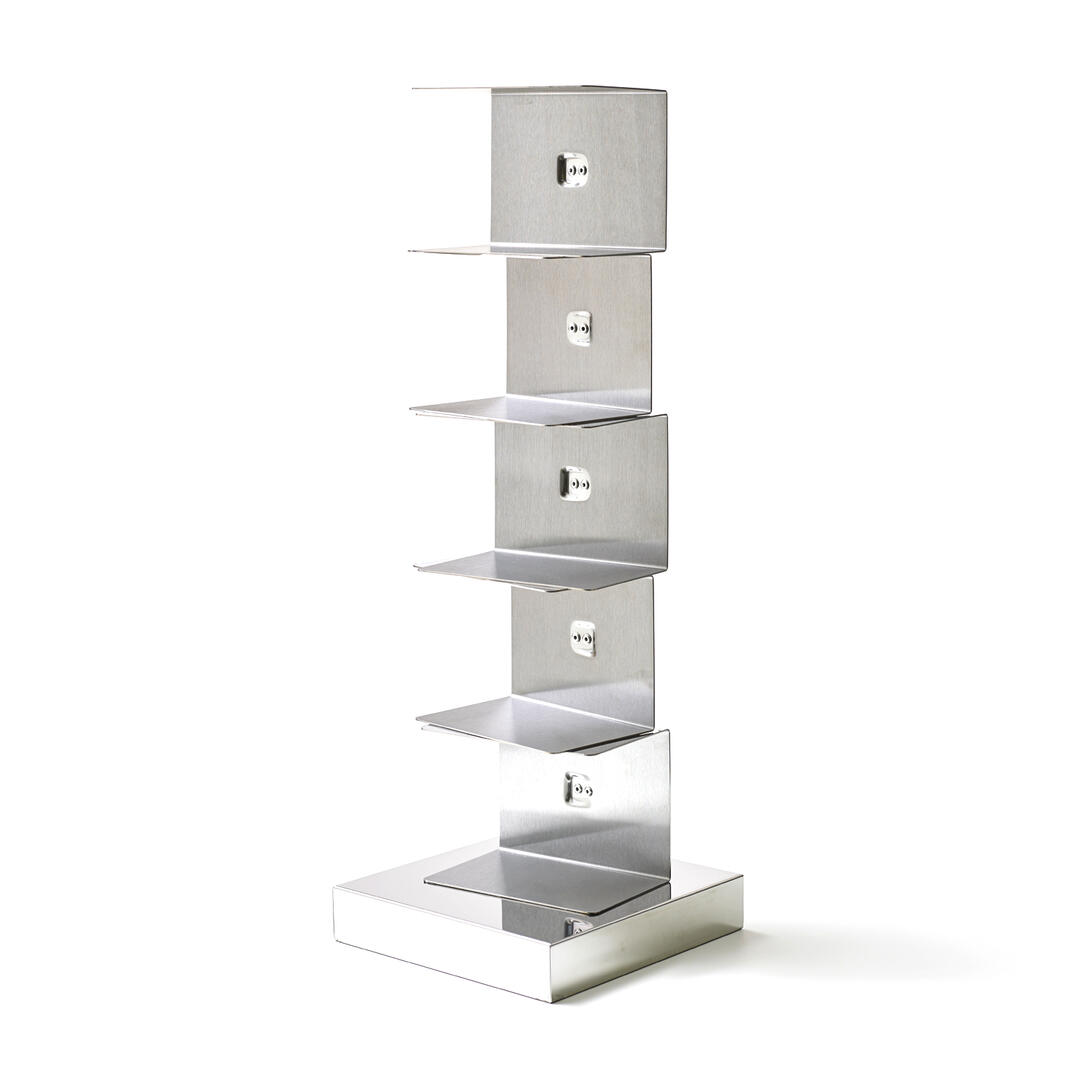
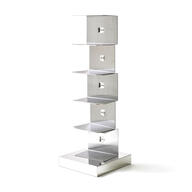
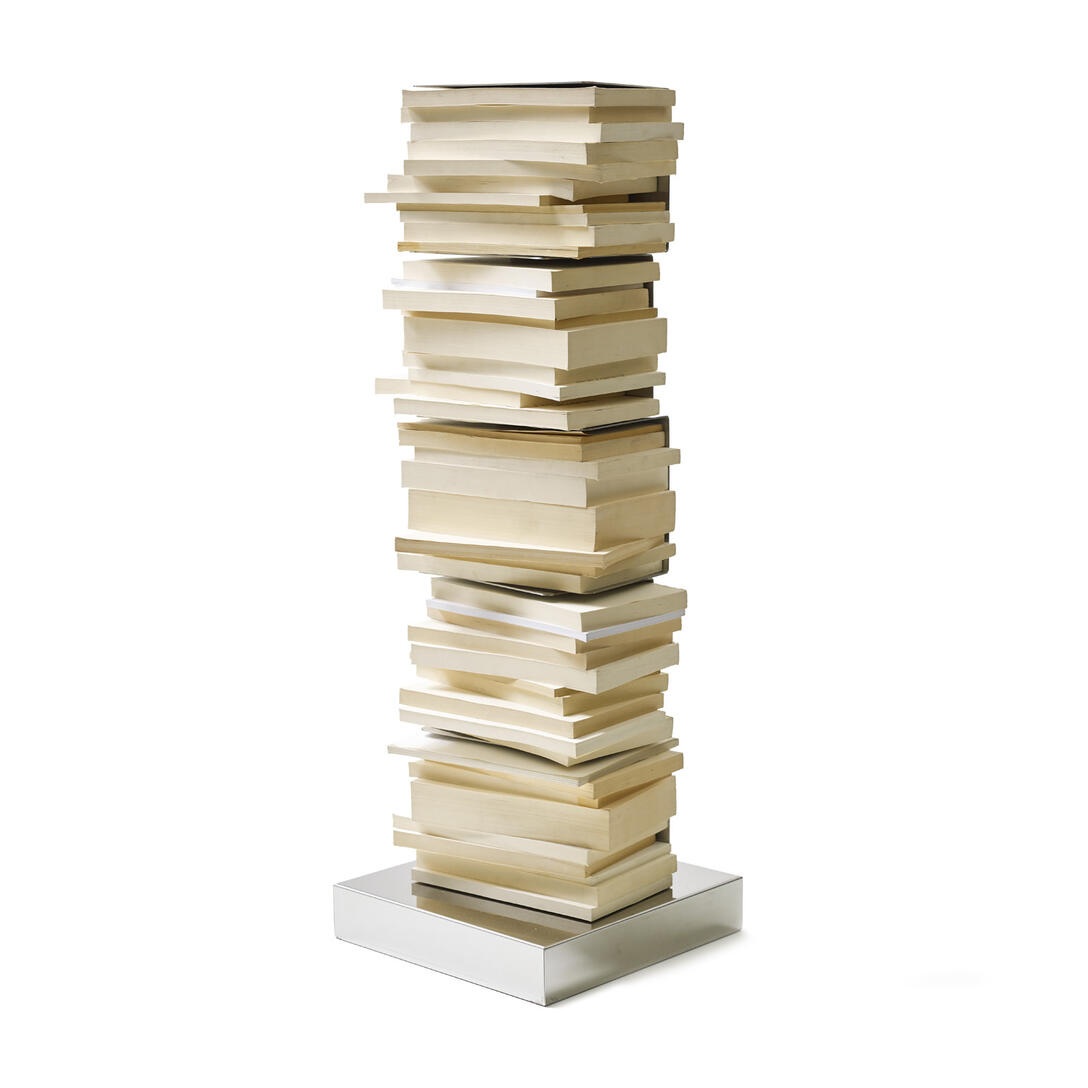

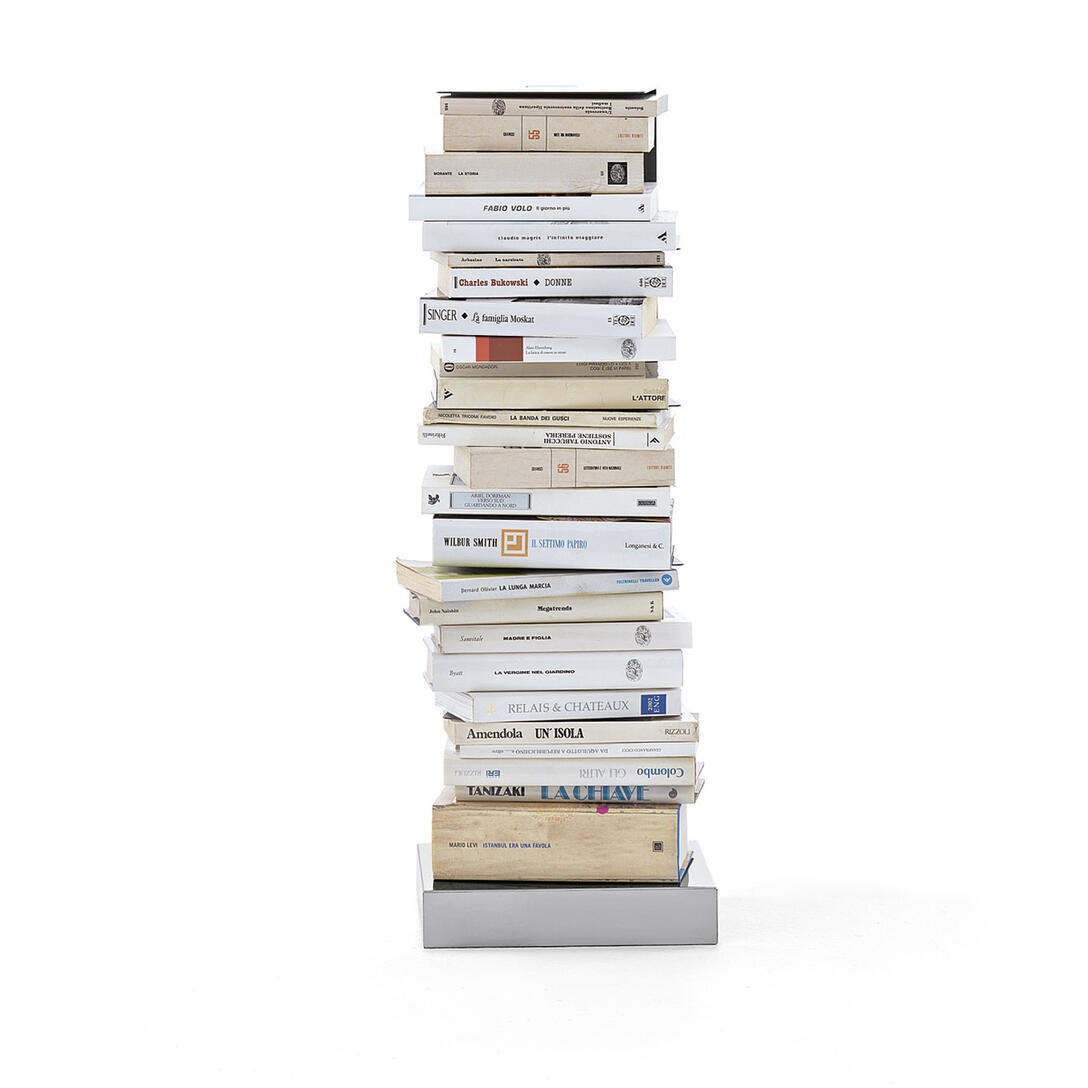

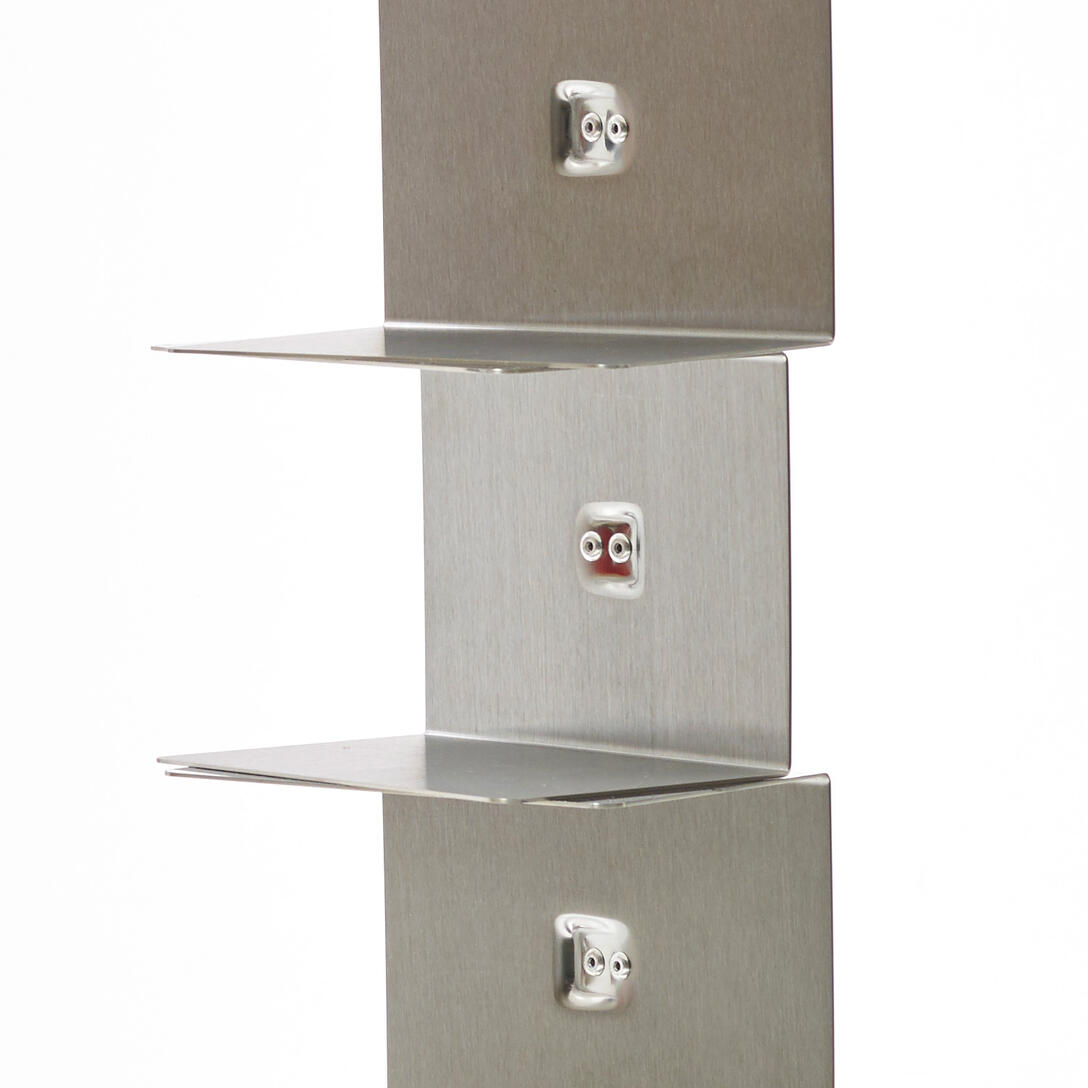
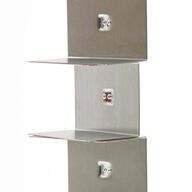
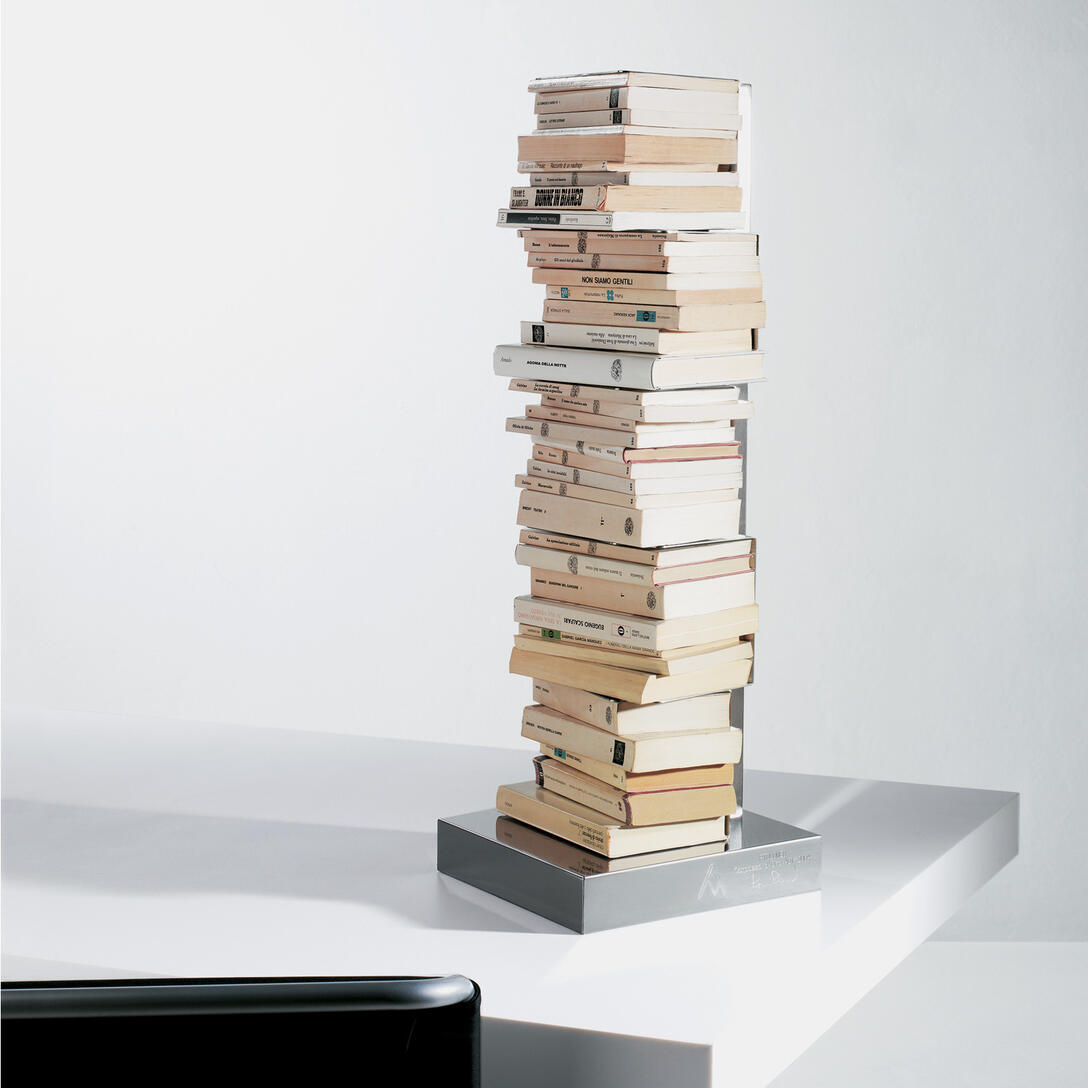

€ 933,00
Vertical free-standing steel bookcase, polished stainless steel finish for the external part, satin for the inside, engraved with the designer’s signature on the base.
Awarded with the Compasso d’Oro in 2004, Original Ptolomeo is the free-standing bookcase that doesn’t require any further presentation: it is simple, revolutionary, innovative, as sudden as an intuition and as surprising as its success.
Free-standing, it presents itself as a simple steel column to which thin shelves, also in steel, are attached. The shelves gradually disappear as the column is filled with books. When it is full, Original Ptolomeo becomes totally imperceptible and it appears as if the books are standing up on their own.
Recognised contemporary design icon, Original Ptolomeo is a container that hides its shape to enhance its content, eliminating the “superfluous” to highlight the essential, namely the books.
This stainless steel version shows its most sophisticated face, an undisputed elegance to give a charming touch to all the environment where it is placed. There’s no room that it is not perfect for Original Ptolomeo: at the entrance as unexpected pocket emptier, in the living room but also in the bedroom instead of the usual bedside table. It adapts to all contexts, at home as well as contract environments.
Original Ptolomeo is available in three sizes (cm 75 along with 160 and 215) and finishes (black, white or corten effect).
Enjoy and find your favourite combination!
Code: PTXX75
Dimension: 26 x 26 cm, h 75 cm
Material: steel
Finish: stainless steel
Weight: kg 12
Volume: m3 0,075
Note: Capacity approx. 35 volumes. Every shelf can carry up max 2 kg.
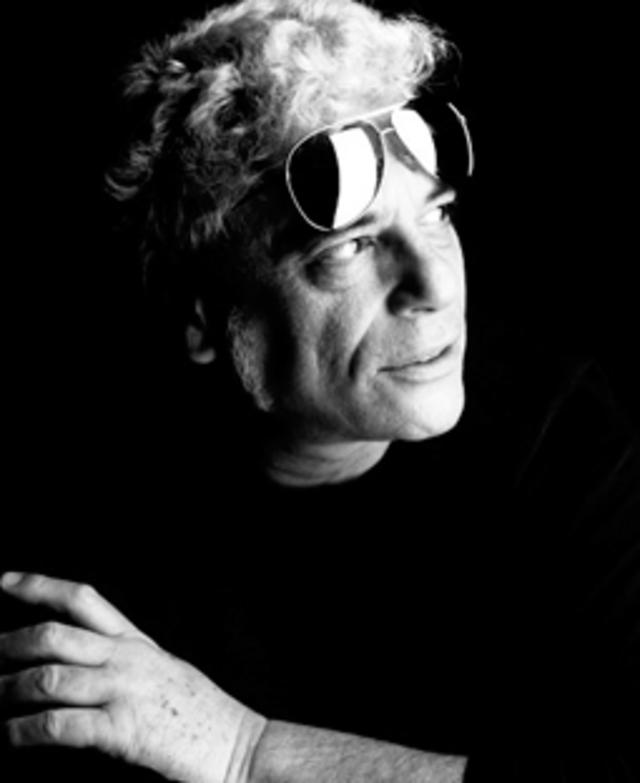
Bruno Rainaldi was born in Milan in 1952. His training was hands-on, having started at a young age to work in design communication. In his early years in Milan he managed the first High-Tech emporium in Corso di Porta Ticinese, moving on to work first alongside Maddalena De Padova in the historical showroom in Corso Venezia and then with Enrico Baleri as partner in Baleri & Associati, where he was in charge of defining communication strategies for design companies and stores. His beginnings as an autodidact encouraged him in later life to ironically and anti-celebratively define himself as a “street designer” and his style as “chaotically rigorous”.
In the mid-1980s he founded Studio Rari – of which he became the soul and creative director. He also started working as art director with some of the top Italian design companies, leading his name to be associated, amongst others, with Alivar, Casprini, MDF Italia, Mussi Italy, Sintesi, Slamp, Terzani. His encounter, in those same years, with the Ciatti family marked the beginning of an important personal and artistic alliance, that led to the establishment first of CCR and then of Opinion Ciatti.
In the early 2000s, his career took a turn towards the world of design. In 2002, together with Marta Giardini, he founded ENTRATALIBERA, a very special space in the heart of Milan dedicated to design and design culture, sales and encounters. At the same time, his focus shifted to studying and creating objects, furnishing accessories and lamps, where the expertise gained over the years in this sector mingled with design inventions.
Amongst the numerous pieced designed there is the Ptolomeo bookshelf, for which, in 2004, he was awarded the Compasso d’Oro. In 2006, together with the very young Lapo Ciatti, who had just entered the family business, he founded Opinion Ciatti, of which Bruno Rainaldi was President, partner and art director.
He passed away prematurely in February 2011.
Bruno Rainaldi was born in Milan in 1952. His training was hands-on, having started at a young age to work in design communication. In his early years in Milan he managed the first High-Tech emporium in Corso di Porta Ticinese, moving on to work first alongside Maddalena De Padova in the historical showroom in Corso Venezia and then with Enrico Baleri as partner in Baleri & Associati, where he was in charge of defining communication strategies for design companies and stores. His beginnings as an autodidact encouraged him in later life to ironically and anti-celebratively define himself as a “street designer” and his style as “chaotically rigorous”.
In the mid-1980s he founded Studio Rari – of which he became the soul and creative director. He also started working as art director with some of the top Italian design companies, leading his name to be associated, amongst others, with Alivar, Casprini, MDF Italia, Mussi Italy, Sintesi, Slamp, Terzani. His encounter, in those same years, with the Ciatti family marked the beginning of an important personal and artistic alliance, that led to the establishment first of CCR and then of Opinion Ciatti.
In the early 2000s, his career took a turn towards the world of design. In 2002, together with Marta Giardini, he founded ENTRATALIBERA, a very special space in the heart of Milan dedicated to design and design culture, sales and encounters. At the same time, his focus shifted to studying and creating objects, furnishing accessories and lamps, where the expertise gained over the years in this sector mingled with design inventions.
Amongst the numerous pieced designed there is the Ptolomeo bookshelf, for which, in 2004, he was awarded the Compasso d’Oro. In 2006, together with the very young Lapo Ciatti, who had just entered the family business, he founded Opinion Ciatti, of which Bruno Rainaldi was President, partner and art director.
He passed away prematurely in February 2011.